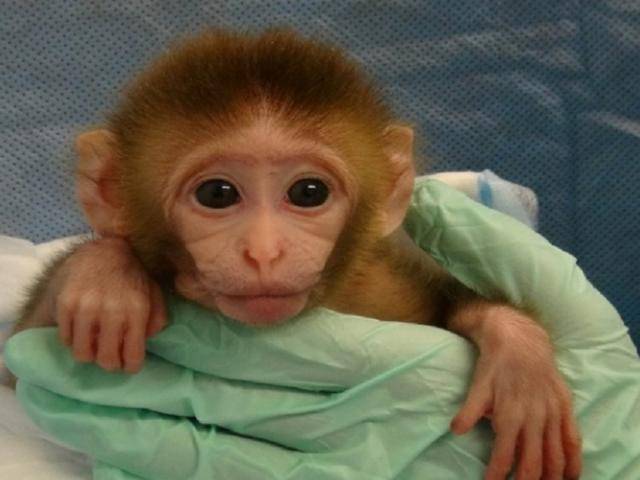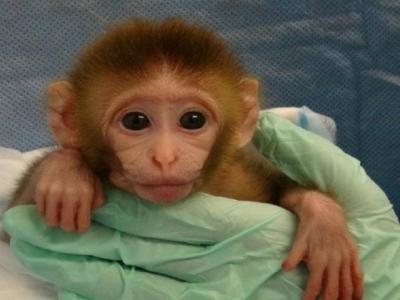Chinese scientists have successfully cloned a Rhesus macaque monkey, which is now two years old and healthy, by improving the technique that led to the birth of the sheep Dolly in 1996, according to a study published on Tuesday. Cloning primates is particularly challenging, and researchers faced years of failure before ultimately achieving their goal. They hope that their new technique, which utilizes the placenta, will lead to the cloning of identical Rhesus macaques for use in medical research.
Since the cloning of Dolly using somatic cell nuclear transfer in 1996, over 20 different mammal species have been created using this process, including dogs, cats, pigs, and cattle. However, scientists needed two decades afterwards to clone the first primate. In 2018, a pair of genetically identical long-tailed macaques, named Hua Hua and Zhong Zhong, were born using somatic cell nuclear transfer at the Institute of Neuroscience of the Chinese Academy of Sciences in Shanghai, led by Qiang Sun, the first author of the study published in "Nature Communications".
This development is considered a scientific achievement, even though fewer than 2% of cloned long-tailed macaques survive at birth. All attempts to clone Rhesus monkeys (Macaca mulatta) had previously failed. The Chinese institute investigated the reasons for this failure and concluded that the main issue was that the placenta, which provides the necessary nutrients for the growth of cloned embryos, showed defects compared to the placenta resulting from in vitro fertilization of non-cloned monkeys.
To address this, researchers replaced the future placental cells, called trophoblasts, with healthy non-cloned embryonic cells. This technique "greatly improved the success rate of somatic cell nuclear transfer cloning" and resulted in the birth of the cloned Rhesus macaque. Qiang Sun explained to AFP that the monkey, named "Retro," is now two years old.
However, the downside was that only one of 113 initial embryos survived, resulting in a success rate of less than 1%, according to Luis Montoliu from the Spanish National Biotechnology Centre, who did not participate in the research. Montoliu added that if researchers ever attempt to clone humans – a great concern in this field of study – they must first succeed in cloning other primate species. He remarked that the low success rate of this research "confirms that human cloning is not only unnecessary and highly questionable but also, if attempted, would be extremely difficult and ethically unjustifiable." Qiang Sun shares this perspective, considering human cloning "unacceptable under any circumstances."




